
United Nations Security Council resolution 819, adopted unanimously on 16 April 1993, after reaffirming resolutions 713 (1991) and all (1992) subsequent resolutions, the Council expressed concern at the actions of Bosnian Serb paramilitary units in towns and villages in eastern Bosnia and Herzegovina, including attacks on civilians, the United Nations Protection Force and disruption to humanitarian aid convoys. The resolution marked the UN's first civilian "safe area" being declared; it failed to prevent the Srebrenica massacre.
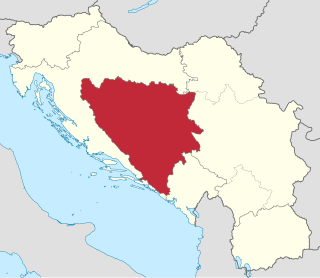
United Nations Security Council resolution 752, adopted unanimously on 15 May 1992, after reaffirming resolutions 713 (1991), 721 (1991), 724 (1991), 727 (1992), 740 (1992) 743 (1992) and 749 (1992), the Council expressed concern at the situation in the Yugoslavia, in particular the fighting in Bosnia and Herzegovina, demanding that all parties end the fighting and respect the ceasefire signed on 12 April 1992.

United Nations Security Council resolution 758, adopted unanimously on 8 June 1992, after reaffirming resolutions 713 (1991), 721 (1991), 724 (1991), 727 (1992), 740 (1992) 743 (1992), 749 (1992), 752 (1992) and 757 (1992), the council, in accordance with a report by the Secretary-General Boutros Boutros-Ghali, decided to enlarge the mandate and strength of the United Nations Protection Force (UNPROFOR) in former Yugoslavia.

United Nations Security Council Resolution 761, adopted unanimously on 29 June 1992, after reaffirming Resolutions 713 (1991), 721 (1991), 724 (1991), 727 (1992), 740 (1992) 743 (1992), 749 (1992), 752 (1992), 757 (1992), 758 (1992) and 760 (1992), the Council authorised the Secretary-General to immediately deploy additional elements of the United Nations Protection Force in Croatia and Bosnia and Herzegovina during the Yugoslav Wars.
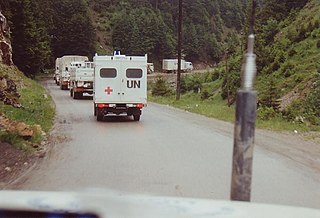
United Nations Security Council resolution 764, adopted unanimously on 13 July 1992, after reaffirming previous resolutions on the topic, the Council noted the violations of the agreement concerning Sarajevo International Airport which established a security corridor and demanded withdrawal of anti-aircraft weapon systems, and decided to authorise an additional deployment of United Nations Protection Force personnel. It would increase the size of the Force to two infantry battalions.

United Nations Security Council resolution 770, adopted on 13 August 1992, after reaffirming previous resolutions on the topic, including Resolution 743 (1992), Resolution 749 (1992), Resolution 761 (1992) and Resolution 764 (1992), the Council recognised the humanitarian situation in Sarajevo and other areas in Bosnia and Herzegovina.

United Nations Security Council resolution 771, adopted unanimously on 13 August 1992, after reaffirming resolutions 713 (1991), 721 (1991), 724 (1991), 727 (1992), 740 (1992), 743 (1992), 749 (1992), 752 (1992), 757 (1992), 758 (1992), 760 (1992), 761 (1992), 762 (1992), 764 (1992), 769 (1992) and 770 (1992), the council expressed concern at and condemned widespread violations of international humanitarian law in the territory of the former Yugoslavia and in particular, Bosnia and Herzegovina.

United Nations Security Council resolution 779, adopted unanimously on 6 October 1992, after reaffirming Resolution 743 (1992) and subsequent resolutions and noting a report by the Secretary-General Boutros Boutros-Ghali submitted pursuant to resolutions 743 and 762 (1992), the Council authorised the United Nations Protection Force (UNPROFOR) to assume responsibility for monitoring the complete withdrawal of the Yugoslav People's Army from Croatia, demilitarization of the Prevlaka peninsula and the removal of heavy weapons from neighbouring areas of Croatia and Montenegro in co-operation with the European Community Monitoring Mission.
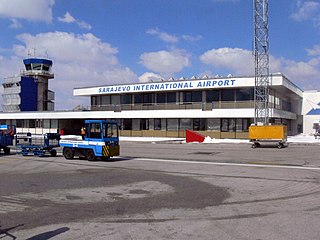
United Nations Security Council Resolution 781 was adopted on 9 October 1992. After reaffirming Resolution 713 (1991) and all the subsequent resolutions on the situation in the former Yugoslavia, the Council decided to impose a ban on military flights in the airspace over Bosnia and Herzegovina, acting in accordance with the provisions set out in Resolution 770 (1992).

United Nations Security Council resolution 787, adopted on 16 November 1992, after reaffirming Resolution 713 (1991) and all subsequent resolutions on the topic, the council called upon the parties in Bosnia and Herzegovina to consider the draft outline constitution as a basis for negotiating a political settlement of the conflict in the country, and went on to impose further international sanctions on the Federal Republic of Yugoslavia.

United Nations Security Council resolution 808, adopted unanimously on 22 February 1993, after reaffirming Resolution 713 (1991) and subsequent resolutions on the situation in former Yugoslavia, including resolutions 764 (1992), 771 (1992) and 780 (1992), the council, after stating its determination to put an end to crimes such as ethnic cleansing and other violations of international humanitarian law, decided that an international tribunal should be established for the prosecution of persons responsible for serious violations of international humanitarian law committed in former Yugoslavia since 1991. This later became known as the International Criminal Tribunal for the former Yugoslavia.

United Nations Security Council resolution 815, adopted unanimously on 30 March 1993, after reaffirming Resolution 743 (1992) and all subsequent relevant resolutions concerning the United Nations Protection Force (UNPROFOR) including 802 (1993) and 807 (1993), the council, acting under Chapter VII of the United Nations Charter, extended UNPROFOR's mandate for an additional interim period ending 30 June 1993.

United Nations Security Council resolution 816, adopted on 31 March 1993, after reaffirming resolutions 781 (1992), 786 (1992) concerning a ban on military flights over Bosnia and Herzegovina and recognising the current situation in the region, the council, acting under Chapter VII of the United Nations Charter, extended the ban to cover flights by all fixed-wing and rotary-wing aircraft over the country, and to use all measures necessary to ensure compliance with the ban.

United Nations Security Council resolution 820, adopted on 17 April 1993, after reaffirming all previous resolutions on the topic for a lasting peace settlement in Bosnia and Herzegovina and the region, the council discussed the peace plan for Bosnia and Herzegovina and comprehensive steps to ensure its implementation.

United Nations Security Council resolution 836 was adopted on 4 June 1993. After reaffirming Resolution 713 (1991) and all subsequent resolutions on the situation in the former Yugoslavia, the Council expressed its alarm at the continuing situation in Bosnia and Herzegovina and decided to expand the mandate of the United Nations Protection Force (UNPROFOR) by allowing it to use force to protect the "safe areas".

United Nations Security Council resolution 859, adopted unanimously on 24 August 1993, after recalling all resolutions on the situation in Bosnia and Herzegovina, the council noted that, despite all previous security council resolutions since Resolution 713 (1991), the region was still a scene of hostilities and there was little compliance with previous resolutions, particularly by the Bosnian Serb party.
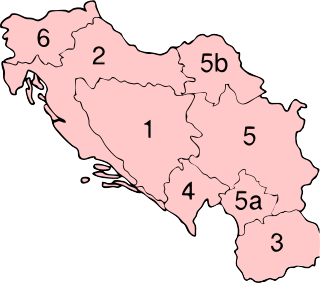
United Nations Security Council resolution 871, adopted unanimously on 4 October 1993, after reaffirming resolutions 713 (1992) and 743 (1992) and subsequent resolutions relating to the situation in the former Yugoslavia and United Nations Protection Force (UNPROFOR), the Council expressed concern that United Nations peacekeeping plan for Croatia, in particular Resolution 769 (1992), had not been implemented and went on to discuss the peace plan and extend UNPROFOR's mandate until 31 March 1994.

United Nations Security Council resolution 941, adopted unanimously on 23 September 1994, after reaffirming all resolutions on the situation in Bosnia and Herzegovina, the Council discussed violations of international humanitarian law in Banja Luka, Bijeljina and other areas of the country.
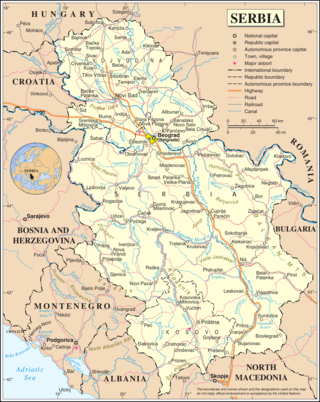
United Nations Security Council resolution 970, adopted on 12 January 1995, after reaffirming all resolutions on the situation in Bosnia and Herzegovina in particular Resolution 943 (1994) concerning the border closure between the Federal Republic of Yugoslavia and Bosnia and Herzegovina, the Council decided that measures in that resolution would be suspended for a further period of 100 days.

United Nations Security Council resolution 998, adopted on 16 June 1995, after reaffirming all resolutions on the conflicts in the former Yugoslavia, in particular Resolution 982 (1994), the council established a rapid reaction force of up to 12,500 personnel within the United Nations Protection Force (UNPROFOR) in Bosnia and Herzegovina following attacks on it and the overall deteriorating situation.



















